Exploring Climate Leadership Through Business: Goizueta MBAs Reflect on ClimateCAP 2025
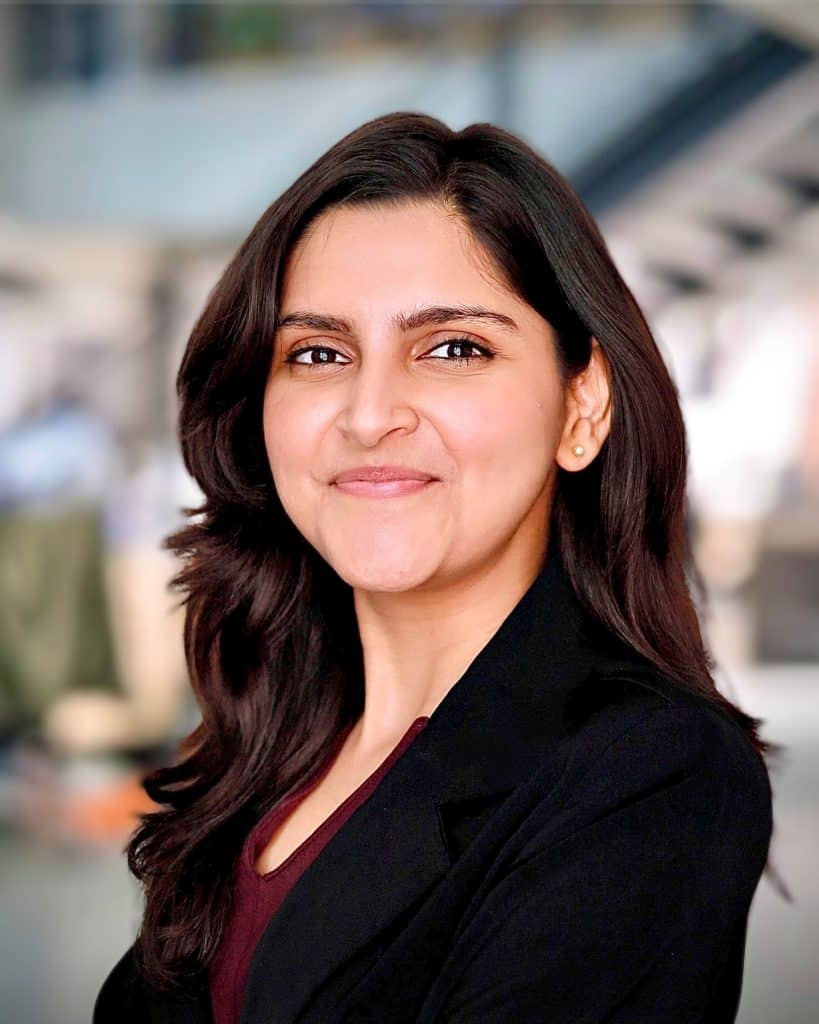


Recently, we spoke with three Goizueta MBA students, Siddhi Patel 26MBA, Hannah Chiou 26MBA, and Maddie McMurray 26MBA, who attended the 2025 ClimateCAP Global Summit, an annual gathering of MBA students and professionals focused on advancing business solutions to climate change. Each brought a unique perspective shaped by their personal and professional backgrounds, from social impact and investment to healthcare and tech. Below, they reflect on what they learned, how the experience challenged their thinking, and why business education plays a critical role in building a climate-smart future.
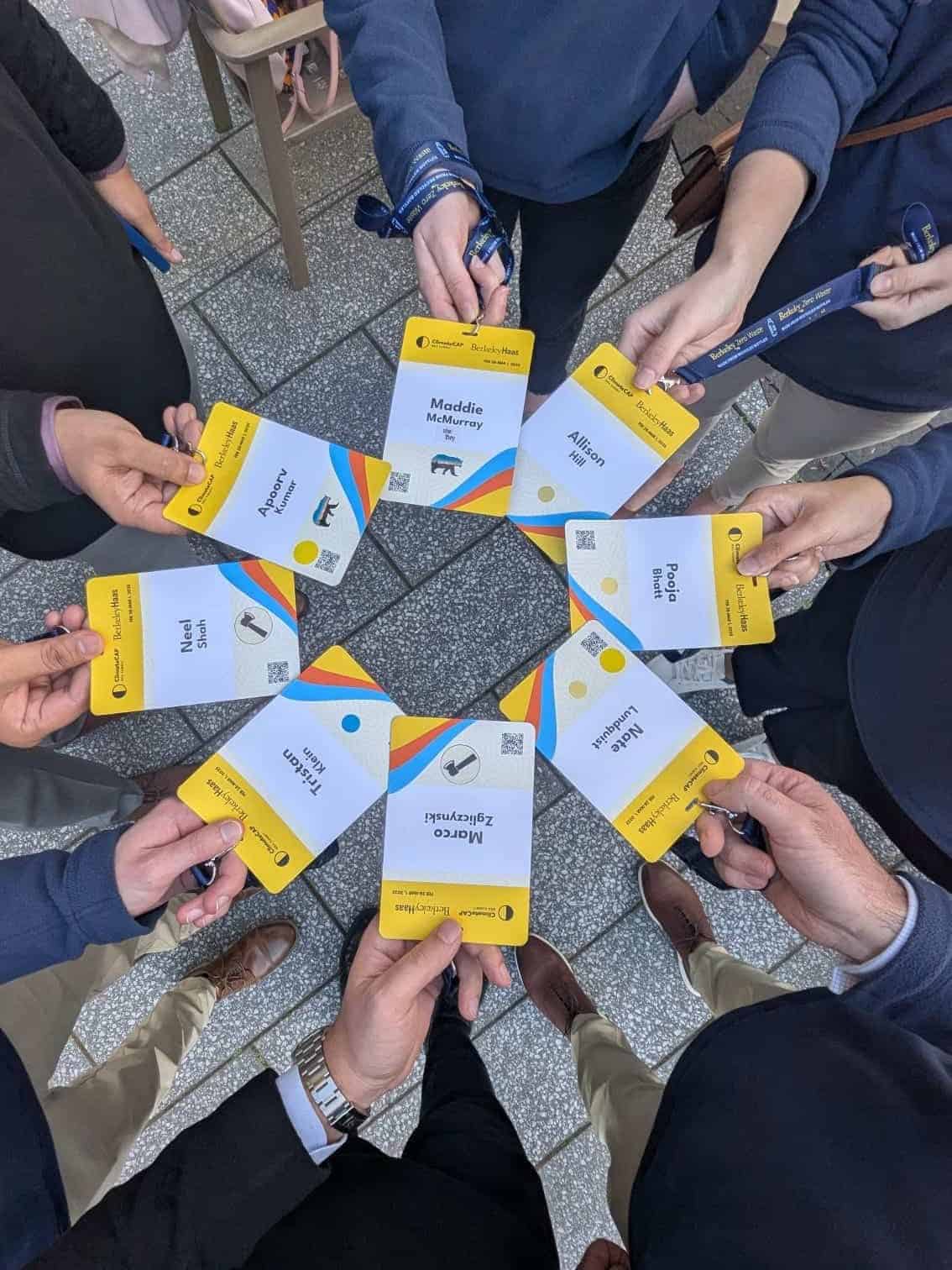
What initially motivated you to attend the ClimateCAP Global Summit?
- Maddie McMurray: As a member of GECTA and the Sustainability Club at Goizueta Business School, I was excited to be among like-minded MBAs for the Summit. Meeting MBAs from other programs and hearing what they’re talking about in classes gave me great ideas for what can be brought back to Goizueta.
- Hannah Chiou: Part of what I love about Goizueta’s MBA program is the ability to explore outside of my previous field of expertise! ClimateCAP was a fantastic way for me to begin stepping into the corporate sustainability sector and see where my personal interests converge with organizational priorities.
- Siddhi Patel: Being a Business and Society Fellow gave me the opportunity to participate in the ClimateCAP Global Summit. In addition, my prior experience working on a climate-focused thesis for a VC fund sparked my interest in understanding the evolving landscape of climate innovation and investment. The conference offered an ideal platform to learn from leading experts and engage with peers who are equally passionate about driving sustainable business solutions.
What was one of the most powerful or surprising moments from the conference?
- Hannah: When I was a child, I wanted to become a professional chef. When I learned about the Michelin Star rating system, I also learned about Chez Panisse, which was run by Alice Waters. Notably, I was too young to surf the internet at the time and simply knew the restaurant specialized in farm-to-table. To my utter shock and delight, Alice was on one of the ClimateCAP panels! I had no idea that she was so influential in the U.S. expression of slow-food, nutrition, and sustainable farming. It was an incredible moment to shake hands with a celebrity crush from my childhood!
- Siddhi: One of the most surprising moments for me at the ClimateCAP Global Summit was learning about regional variations in climate change impacts. While the global average temperature has increased by about 1.3°C since pre-industrial times, India has experienced a comparatively slower rate of warming. This is primarily due to aerosols – tiny particles in the atmosphere – that actually have a cooling effect by reflecting sunlight and influencing cloud formation. I found it both amusing and somewhat ironic that the very pollution we often view negatively has, in this instance, contributed to a temporary silver lining for India. It really highlighted for me the complex, sometimes counterintuitive interactions in climate systems and reinforced the need to consider regional dynamics when designing solutions.
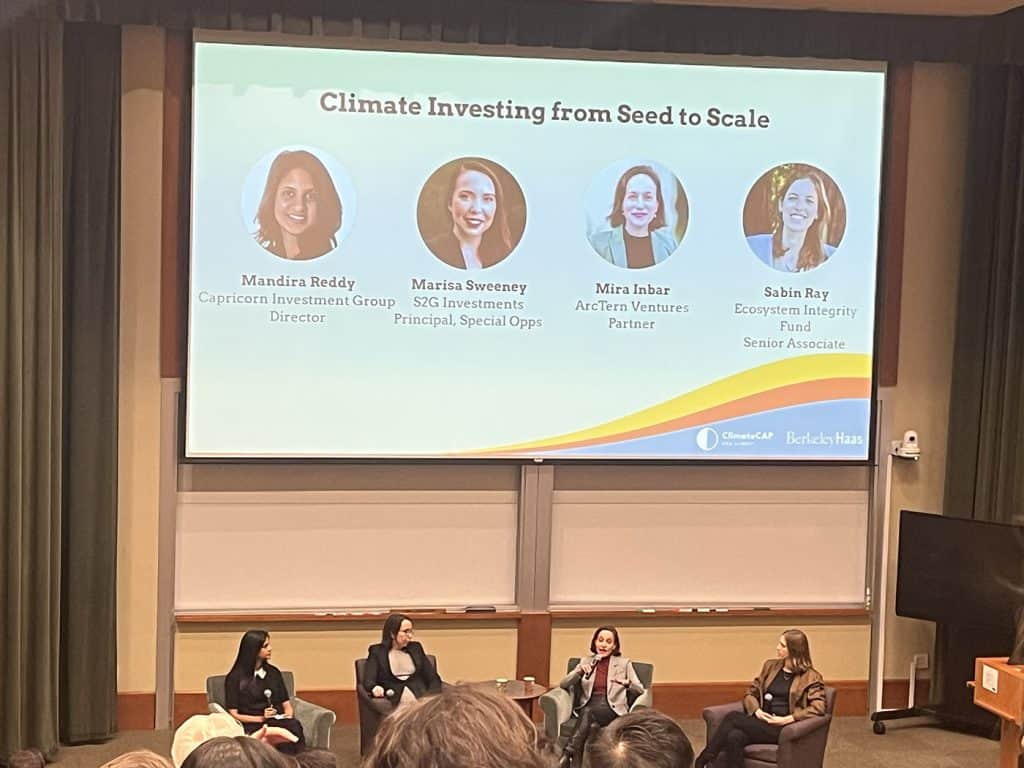
Was there a speaker, company, or conversation that especially resonated with you?
- Hannah: Traditional Medicinals is a tea company that I seek out every winter season. Hearing from Jamie Horst, the Chief Purpose Officer, affirmed the ability of corporations to do good at a local level. Some of the pharmaceutical-grade herbs they use are in remote regions and require wild picking. In securing their supply chain, they also invest directly into the infrastructure of the communities they work in with regenerative farming, health, and literacy efforts. Just this week, they achieved the “Fair for Life” certification, which is incredibly well-deserved.
- Siddhi: This year’s ClimateCAP theme was “Leading with Resilience.” Sessions covered topics ranging from food to climate science to energy to finance to environmental justice and policy, with panelists from companies including GM, Meta, PG&E, Franklin Templeton, Once Upon a Farm, GoodEggs, hyperlocal air quality mapping platform Aclima, and many more.
The summit was such a valuable experience – it gave me deeper insight into how climate, finance, policy, and technology all intersect, and it was also a great chance to connect with MBA students from across the country. One of the highlights was having dinner on top of the Cal Memorial Stadium with a gorgeous sunset view, which made the whole experience even more special. I also loved that the conference put real emphasis on Food & Agriculture – between the urban farm tour at Oxford Tract and the panel featuring leaders like Alice Waters from Chez Panisse and the Edible Schoolyard Project, it was both inspiring and grounding.
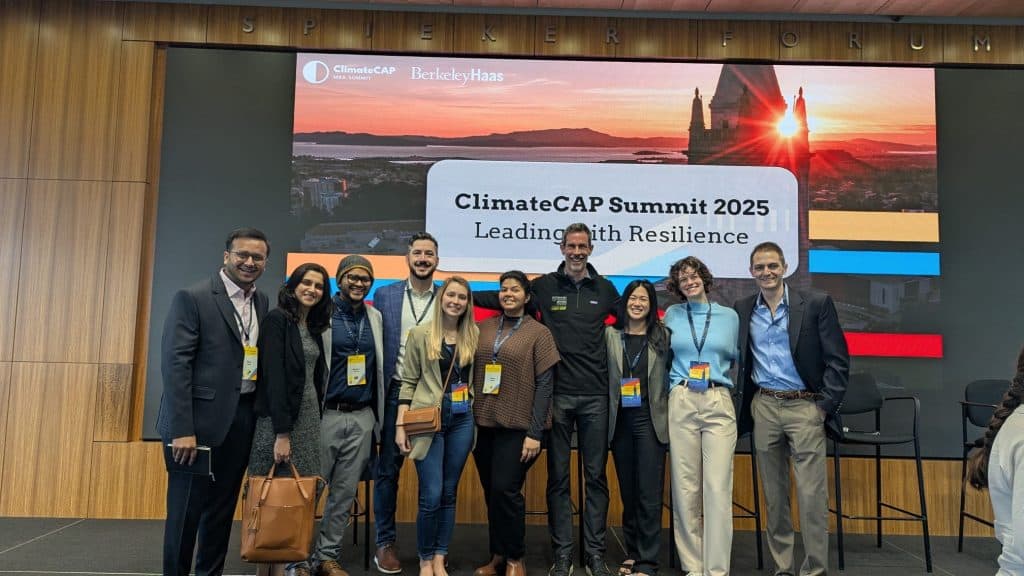
What did ClimateCAP teach you about the intersection of business and climate change that you hadn’t considered before?
- Siddhi: What ClimateCAP taught me is that the intersection of business and climate change is far more expansive than I had considered – it is not only about technology or finance, but also about people, communities, and the values that guide leadership. A moment that stood out was when Urvi Parekh 09MBA, head of global energy for Meta, spoke about the challenges of diversifying Meta’s growing energy needs. She reminded us that the number of MBAs and skilled professionals needed in this space is immense – so much so that even if each of us brought along a friend, it would still not be enough. That struck me deeply. It underscored that resilience in the face of climate change requires not just innovation, but a collective commitment across industries and disciplines. For me, the lesson was clear: true business leadership in this era means creating enterprises that endure by serving all stakeholders – our shareholders, yes, but equally our people, our communities, and our planet.
How has the summit influenced your goals, both during your MBA experience and after graduation?
- Maddie: The summit has encouraged me to look for academic opportunities beyond Goizueta Business School to stay up to date on environmental action. Emory’s Rollins School of Public Health has a breadth of sustainability classes that we’re able to enroll in as Emory graduate students. While I’m not taking any classes this fall, I hope to in Spring 2026.
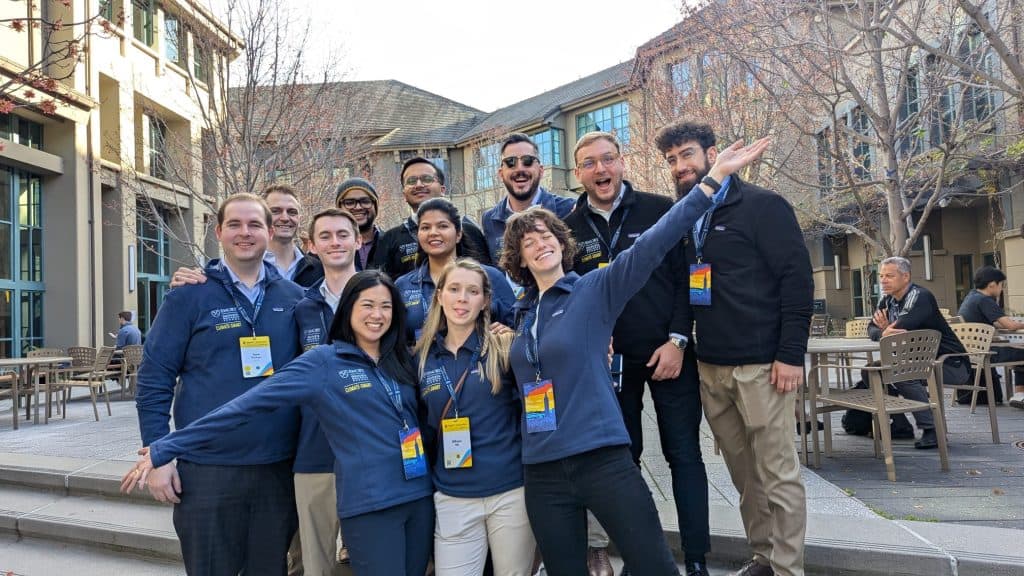
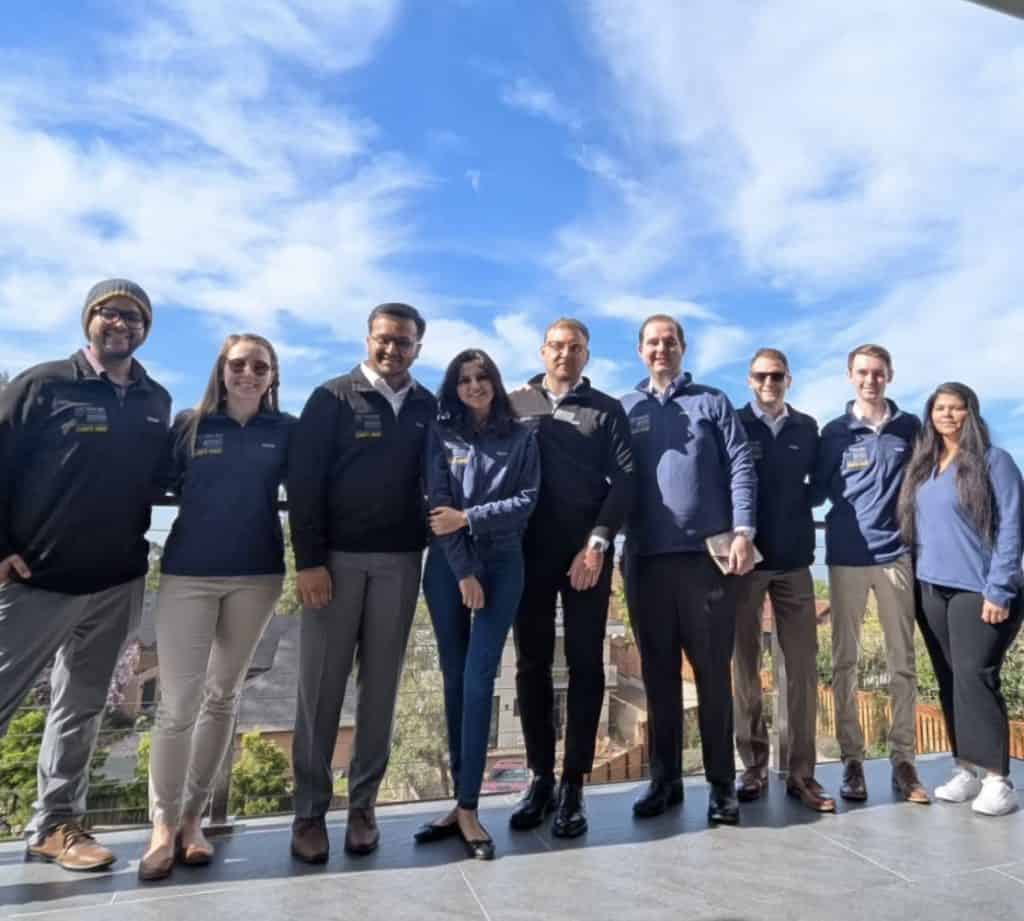
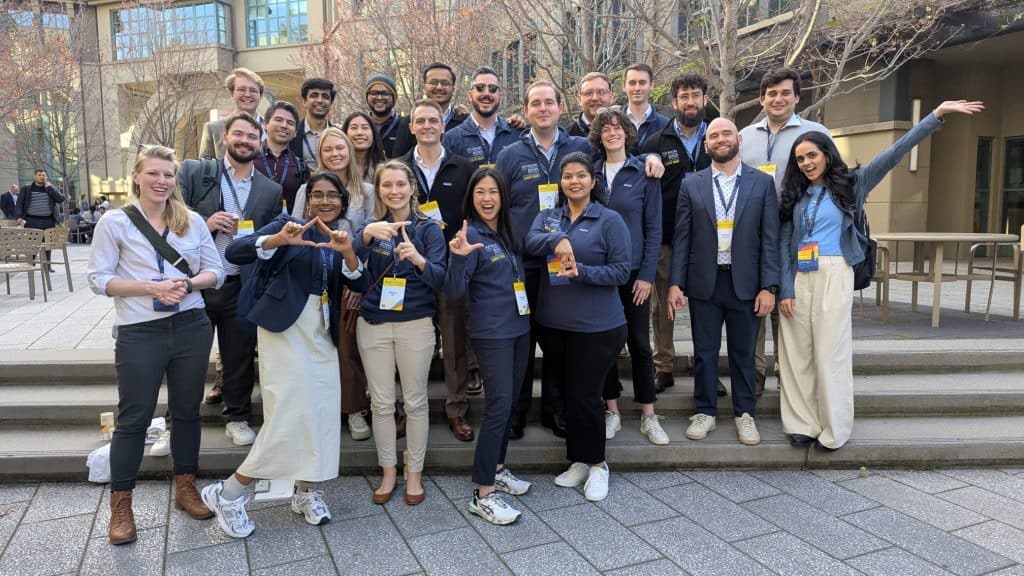
What advice would you give to other MBA students interested in climate or sustainability—but who may not come from a traditional “green” background?
- Maddie: Just like an MBA, not having a “traditional” background doesn’t preclude you from events and learning. Climate solutions sometimes require thinking outside of the box, and being the person who is newer to a field allows you to see and ask questions that others may not have thought of yet.
- Hannah: Don’t be cowed by terms like “Scope 3 emissions” and “GHG Protocols.” You can learn about them from the resources on ClimateCAP’s website, MBA classes, or through organic conversation at the conference. The only requirement is to be curious!
- Siddhi: I would tell them this: don’t count yourself out just because you don’t come from a “green” background. Climate and sustainability need all kinds of voices and skills – finance, policy, entrepreneurship, technology, and even storytelling. What matters most is the willingness to learn, to show up with humility, and to think about how your unique strengths can help move the needle. And the good news is, there are plenty of ways to start right here in school – whether it’s through electives offered by the Business & Society Institute, joining fellowships and case competitions, or getting involved in clubs like GECTA, GII, or GSI. Each step gives you a chance to build your perspective and find your place in the space.
How can events like ClimateCAP help elevate business as a tool for solving the climate crisis?
- Hannah: A key takeaway – you don’t need to “care” about climate to see the financial case for sustainability. It is, however, our responsibility to understand how to articulate the financial case and advocate for the research or business models that will ultimately empower corporations to make smart decisions.
A delegation of MBA students from Emory University’s Goizueta Business School attended the 2025 ClimateCAP Global Summit, joining peers from around the world to explore the critical role business leaders play in addressing climate change. Through conversations that bridged sectors, industries, and lived experiences, they left the conference with renewed purpose and a commitment to shaping a more sustainable future.
Interested in exploring Full-Time MBA opportunities? Learn more about Goizueta’s Full-Time MBA program.
